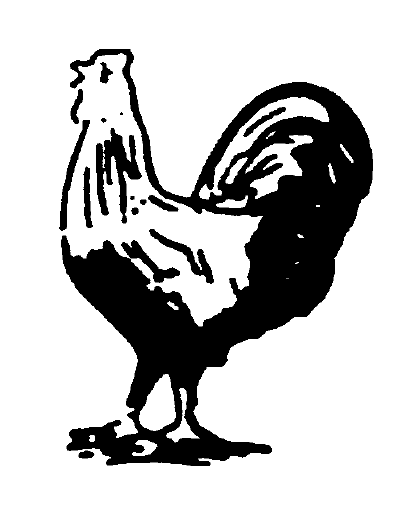|
Kiyanilie Peseyie
Kiyanilie Peseyie (1 August 1941 – 27 September 2017) was an Indian politician from Nagaland, India who served as the speaker of the Nagaland Legislative Assembly. Government Service Between 1971 and 2002 he was in government service. He took voluntary retirement as the Additional Commissioner of Excise, Nagaland and entered politics. Political career In 2003 he was elected to the Legislative Assembly of Nagaland, as the Naga People's Front candidate in the constituency Western Angami ( ST). After the election, he was elected as Speaker of the Legislative Assembly. He retained his constituency in the 2008 election, and was then elected Speaker for a second term. In 2013 he was made the Minister for Public Health Engineering after retaining his constituency for a third time however in a minor reshuffle he was made the minister for Social Security & Welfare Department and Parliamentary Affairs. He was appointed as the Chief Whip of the Naga People’s Front Legislature. He was ... [...More Info...] [...Related Items...] OR: [Wikipedia] [Google] [Baidu] |
Nagaland
Nagaland () is a landlocked state in the northeastern region of India. It is bordered by the Indian states of Arunachal Pradesh to the north, Assam to the west, Manipur to the south and the Sagaing Region of Myanmar to the east. Its capital city is Kohima and its largest city is Dimapur. The state has an area of with a population of 1,980,602 as per the 2011 Census of India, making it one of the smallest states in India.Census of India 2011 Govt of India Nagaland became the 16th state of India on 1 December 1963. It is home to a rich variety of natural, cultural and environmental resources. Nagaland is a mountainous state and lies between the parallels of 95 and 94 degrees east longitude and 25.2 and 27.0 degrees latitude north. The high-profile [...More Info...] [...Related Items...] OR: [Wikipedia] [Google] [Baidu] |
Election Commission Of India
The Election Commission of India (ECI) is a constitutional body. It was established by the Constitution of India to conduct and regulate elections in the country. Article 324 of the Constitution provides that the power of superintendence, direction, and control of elections to parliament, state legislatures, the office of the president of India, and the office of vice-president of India shall be vested in the election commission. Thus, the Election Commission is an all-India body in the sense that it is common to both the Central government and the state governments. The body administers elections to the Lok Sabha, Rajya Sabha, State Legislative Assemblies, State Legislative Councils and the offices of the President and Vice President of the country. The Election Commission operates under the authority of Constitution per ''Article 324'', and subsequently enacted Representation of the People Act. The commission has the powers under the Constitution, to act in an appropriate ... [...More Info...] [...Related Items...] OR: [Wikipedia] [Google] [Baidu] |
2017 Deaths
This is a list of deaths of notable people, organised by year. New deaths articles are added to their respective month (e.g., Deaths in ) and then linked here. 2022 2021 2020 2019 2018 2017 2016 2015 2014 2013 2012 2011 2010 2009 2008 2007 2006 2005 2004 2003 2002 2001 2000 1999 1998 1997 1996 1995 1994 1993 1992 1991 1990 1989 1988 1987 See also * Lists of deaths by day The following pages, corresponding to the Gregorian calendar, list the historical events, births, deaths, and holidays and observances of the specified day of the year: Footnotes See also * Leap year * List of calendars * List of non-standard ... * Deaths by year {{DEFAULTSORT:deaths by year ... [...More Info...] [...Related Items...] OR: [Wikipedia] [Google] [Baidu] |
People From Kohima
A person ( : people) is a being that has certain capacities or attributes such as reason, morality, consciousness or self-consciousness, and being a part of a culturally established form of social relations such as kinship, ownership of property, or legal responsibility. The defining features of personhood and, consequently, what makes a person count as a person, differ widely among cultures and contexts. In addition to the question of personhood, of what makes a being count as a person to begin with, there are further questions about personal identity and self: both about what makes any particular person that particular person instead of another, and about what makes a person at one time the same person as they were or will be at another time despite any intervening changes. The plural form "people" is often used to refer to an entire nation or ethnic group (as in "a people"), and this was the original meaning of the word; it subsequently acquired its use as a plural form of ... [...More Info...] [...Related Items...] OR: [Wikipedia] [Google] [Baidu] |
Naga People's Front Politicians
Naga or NAGA may refer to: Mythology * Nāga, a serpentine deity or race in Hindu, Buddhist and Jain traditions * Naga Kingdom, in the epic ''Mahabharata'' * Phaya Naga, mythical creatures believed to live in the Laotian stretch of the Mekong River * Naga, another name for Bakunawa, a sea serpent deity in Filipino mythology Clans and ethnic groups * Naga people, an ethnic group of northeast India and northwest Burma * Nagas of Padmavati, a royal dynasty of the 3–4 centuries AD * Naga Rajputs Rajput (from Sanskrit ''raja-putra'' 'son of a king') is a large multi-component cluster of castes, kin bodies, and local groups, sharing social status and ideology of genealogical descent originating from the Indian subcontinent. The term Ra ..., a group of Rajput clans * Naga people (Lanka), an ancient tribe of Sri Lanka * Dashanami Sampradaya#Naga Sadhus, Naga Sadhus, Hindu ascetics of the Himalayas Hot peppers * Naga Morich * Bhut jolokia * Naga Viper pepper Organizations * Nag ... [...More Info...] [...Related Items...] OR: [Wikipedia] [Google] [Baidu] |
Nagaland MLAs 2003–2008
Nagaland () is a landlocked state in the northeastern region of India. It is bordered by the Indian states of Arunachal Pradesh to the north, Assam to the west, Manipur to the south and the Sagaing Region of Myanmar to the east. Its capital city is Kohima and its largest city is Dimapur. The state has an area of with a population of 1,980,602 as per the 2011 Census of India, making it one of the smallest states in India.Census of India 2011 Govt of India Nagaland became the 16th state of India on 1 December 1963. It is home to a rich variety of natural, cultural and environmental resources. Nagaland is a mountainous state and lies between the parallels of 95 and 94 degrees east longitude and 25.2 and 27.0 degrees latitude north. The high-profile [...More Info...] [...Related Items...] OR: [Wikipedia] [Google] [Baidu] |
Jotsoma
Jotsoma is an Angami Naga village located about west from the state capital, Kohima. The total population of the village is about 2,458. Kohima Science College, Doordharshan Kendra Kohima, Water Supply Reservoir (Public Health Engineering), Sazolie College and Regional Centre of Excellence for Music & Performing Arts (RCEMPA) are located on the hill top of Jotsoma village. Pulie Badze Pulie Badze, is a mountain peak in Kohima District of Nagaland Nagaland () is a landlocked state in the northeastern region of India. It is bordered by the Indian states of Arunachal Pradesh to the north, Assam to the west, Manipur to the so ... which stands at an elevation of above sea level offers a breathtaking panoramic view of the entire city of Kohima. References Villages in Kohima district {{Nagaland-geo-stub ... [...More Info...] [...Related Items...] OR: [Wikipedia] [Google] [Baidu] |
Adivasi
The Adivasi refers to inhabitants of Indian subcontinent, generally tribal people. The term is a Sanskrit word coined in the 1930s by political activists to give the tribal people an indigenous identity by claiming an indigenous origin. The term is also used for ethnic minorities, such as Chakmas of Bangladesh, Khas of Nepal, and Vedda of Sri Lanka. The Constitution of India does not use the word ''Adivasi'', instead referring to Scheduled Tribes and Janjati. The government of India does not officially recognise tribes as indigenous people. The country ratified the International Labour Organization (ILO) Convention 107 on Indigenous and Tribal Peoples of the United Nations (1957) and refused to sign the ILO Convention 169. Most of these groups are included in the Scheduled Tribe category under constitutional provisions in India. They comprise a substantial minority population of India and Bangladesh, making up 8.6% of India's population and 1.1% of Bangladesh's, or 104.2&n ... [...More Info...] [...Related Items...] OR: [Wikipedia] [Google] [Baidu] |
Dimapur
Dimapur () is the largest city in the Indian state of Nagaland. As of 2011, the municipality had a population of 122,834. The city is the main gateway and commercial centre of Nagaland. Located near the border with Assam along the banks of the Dhansiri River. Its main railway station is the second busiest station in Northeast India. Etymology The name Dimapur is derived from the Dimasa words; ''Di'' means "water", ''ma'' means "large" and ''pur'' (sanskrit word) means "city", translating to "Big-river-city", associated with the meaning of "Kachari" which is "people of the river valley" and after the river which flows through it (Dhansiri). There are two accounts of the way in which Dimapur got its name: many writers are of the opinion that the name 'Dimapur' was derived from Dimasa Kachari words ''Di''-meaning water, ''Ma''-meaning big and ''Pur''-meaning city or township in the Dimasa dialect; while others contend that Dimapur is a corruption of ''Hidimbapur'', meaning the c ... [...More Info...] [...Related Items...] OR: [Wikipedia] [Google] [Baidu] |
Nagaland People's Front
The Naga People's Front (NPF) is a regional political party in Nagaland, Manipur and Arunachal, Arunachal Pradesh . It headed the Nagaland government with the Bharatiya Janata Party, as part of the Democratic Alliance of Nagaland from 2003 to 2018. NPF is coalition partner of N. Biren Singh ministry led Bharatiya Janata Party, BJP government in Manipur. Dr. Shürhozelie Liezietsu is the President of the party. Awangbow Newmai is State unit President of the party in Manipur while Losii Dikho is the Legislature Party Leader of NPF in Manipur Legislative Assembly. Neiphiu Rio, the Lok Sabha member from the Nagaland (Lok Sabha constituency), lone constituency of Nagaland was the leader of the party till 16 January 2018. T. R. Zeliang became the party leader till April 29, 2022. The current party leader is Kuzholuzo Nienu. On 22 March 2004, the NPF absorbed the Nagaland Democratic Party. History Prior to October 2002, the party was known as Nagaland People's Council (NPC). The ... [...More Info...] [...Related Items...] OR: [Wikipedia] [Google] [Baidu] |
Legislative Assembly Of Nagaland
Nagaland Legislative Assembly is the unicameral legislature of the Indian state of Nagaland. Nagaland became a state of India on 1 December 1963 and after election in January 1964, the first Nagaland Legislative Assembly was formed on 11 February 1964. In 1974, the strength of the Nagaland Legislative Assembly was increased to the present strength of 60 members. legislativebodiesinindia.nic.in. There is no nominated member in the House, all the members are elected on the basis of adult franchise from single-seat constituencies. The normal tenure of the House is five years unless dissolved sooner. The seat of the Legislative Assembly is Kohima, the capital of Nagaland. Members of Legislative Assembly These are the Members of the Legislative AssemblySee also *Northeast India *Li ...[...More Info...] [...Related Items...] OR: [Wikipedia] [Google] [Baidu] |


_1938.jpg)


.jpg)
